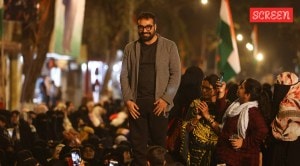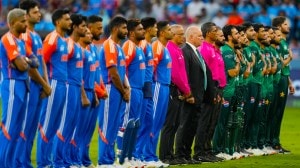‘RSS is a university every patriot must go to’
Apparently hitting out at the United Progressive Alliance (UPA) government’s decision to remove four Governors with Sangh Parivar backg...

Apparently hitting out at the United Progressive Alliance (UPA) government’s decision to remove four Governors with Sangh Parivar background, outgoing Gujarat Governor Kailashpati Mishra said on Tuesday that he would remain a Sangh man all his life.
‘‘I’ll be a Sangh man to my last breath,’’ the outgoing Governor said. ‘‘There’s no question of my severing links with the Sangh.’’
Mishra was speaking at a farewell organised by the Gujarat government at the Gandhinagar Town Hall. Chief Minister Narendra Modi, his ministers, party leaders and bureaucrats all attended the function.
Talking about the RSS, Mishra said, ‘‘The RSS is a university, and if you want to be a genuine patriot, go to this university.’’
He said his removal had little impact on him and that he was satisfied with his 14-month tenure as Governor. Answering questions, Mishra said that rather than challenge the dismissal in a court of law, he’d prefer to take it to the people’s court.
Asked if it would have been better for him to resign than be removed, he said, ‘‘I told the Union Home Minister that I’m discharging my constitutional duty.’’ He did not comment on if the BJP had asked him not to resign. Mishra called for a debate on the institution of Governors in the country.
Modi said Mishra was a ‘‘rashtrabhakt’’ who chose the RSS path and stuck to it for the welfare and development of the country.
Modi also criticised the Centre for suddenly dismissing four Governors, and said, ‘‘I hold the unique distinction of being a CM who has seen four Governors in the last 1,000 days.’’
Since Modi took charge as Chief Minister, the state has seen S.S. Bhandari, Kailashpati Mishra, Balram Jakhar, and Naval Kishore Sharma (the newly-appointed governor) at Raj Bhawan. ‘‘There may be some psychological reasons for these hasty changes,’’ Modi said.
Modi described the outgoing governor as ‘‘non-controversial’’, stating that ‘‘in this era of pro-active media, it’s very difficult for a Governor to strike a balance between his being active or passive while discharging his constitutional duty.’’
Photos




- 01
- 02
- 03
- 04
- 05



























